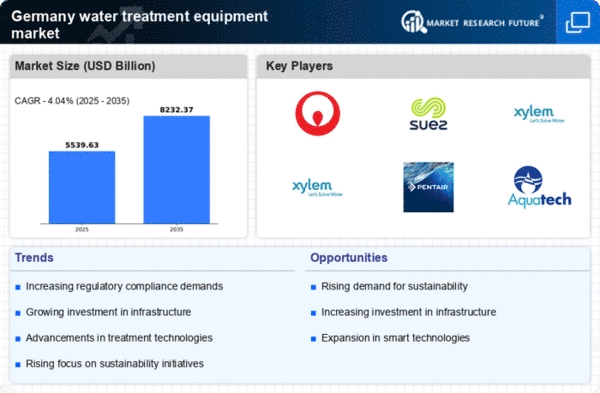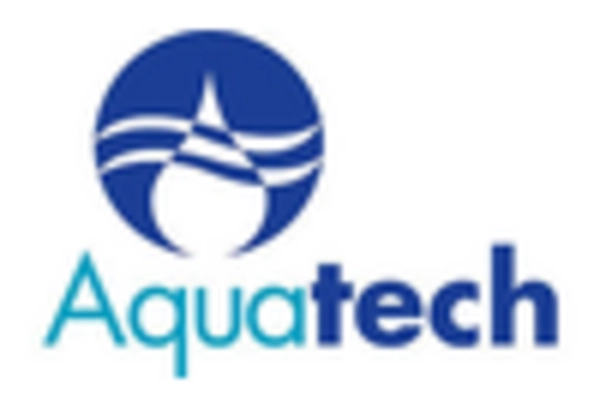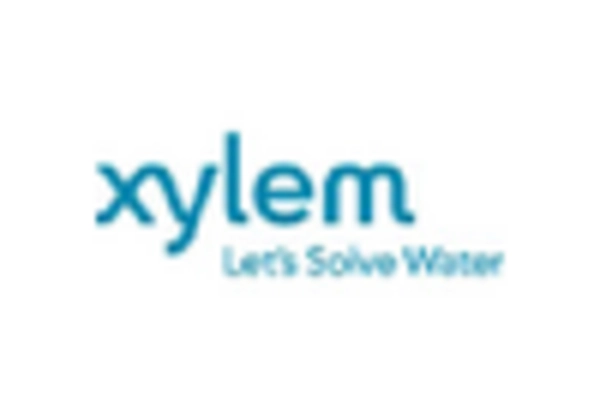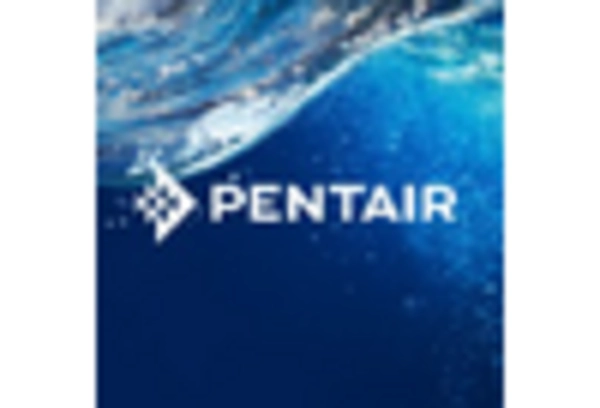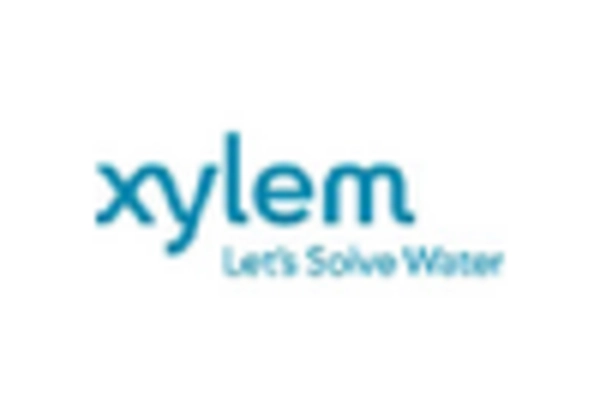Rising Environmental Awareness
The increasing environmental awareness among the German population is significantly influencing the water wastewater-treatment-equipment market. Citizens are becoming more conscious of the impact of wastewater on ecosystems and public health, leading to heightened demand for effective treatment solutions. This trend is reflected in the growing preference for eco-friendly technologies and processes that minimize environmental footprints. As a result, manufacturers are compelled to innovate and offer sustainable solutions, which is likely to drive market growth. In 2025, it is anticipated that the demand for environmentally friendly wastewater treatment technologies will account for approximately 30% of the total market share, underscoring the importance of sustainability in the water wastewater-treatment-equipment market.
Stringent Regulatory Frameworks
The regulatory landscape in Germany plays a crucial role in shaping the water wastewater-treatment-equipment market. The government has implemented stringent regulations aimed at protecting water quality and public health, which necessitates the adoption of advanced treatment technologies. Compliance with these regulations often requires significant investment in new equipment and processes, thereby driving market growth. In 2025, it is expected that compliance-related expenditures will constitute around 25% of total spending in the water wastewater-treatment-equipment market. This regulatory pressure not only compels existing facilities to upgrade but also encourages new entrants to invest in state-of-the-art treatment solutions, further stimulating market dynamics.
Urbanization and Population Growth
Urbanization and population growth in Germany are exerting considerable pressure on wastewater treatment systems, thereby driving the water wastewater-treatment-equipment market. As cities expand and populations increase, the volume of wastewater generated rises, necessitating the development of more efficient treatment solutions. In 2025, urban areas are projected to account for over 75% of the total wastewater generated in the country, highlighting the urgent need for advanced treatment technologies. This trend is likely to lead to increased investments in wastewater treatment infrastructure and equipment, as municipalities seek to enhance their capacity to manage growing wastewater volumes. Consequently, the water wastewater-treatment-equipment market is expected to benefit from this demographic shift.
Increased Investment in Infrastructure
Germany's commitment to upgrading its water infrastructure is a significant driver for the water wastewater-treatment-equipment market. The government has allocated substantial funding for the modernization of aging wastewater treatment plants, which is essential for meeting stringent environmental regulations. In 2025, it is estimated that investments in water infrastructure will exceed €10 billion, reflecting a growing recognition of the need for efficient wastewater management. This influx of capital is expected to stimulate demand for advanced treatment equipment and technologies, thereby propelling the growth of the water wastewater-treatment-equipment market. The focus on enhancing infrastructure not only addresses current challenges but also prepares for future demands.
Technological Advancements in Treatment Processes
The water treatment equipment market is experiencing a surge in technological advancements that enhance treatment efficiency and effectiveness. Innovations such as membrane bioreactors and advanced oxidation processes are becoming increasingly prevalent. These technologies not only improve the quality of treated water but also reduce operational costs. In Germany, the market is projected to grow at a CAGR of approximately 5.2% from 2025 to 2030, driven by the adoption of these advanced treatment technologies. Furthermore, the integration of automation and smart technologies in wastewater treatment facilities is likely to optimize resource management and energy consumption, thereby contributing to the overall growth of the water wastewater-treatment-equipment market.


